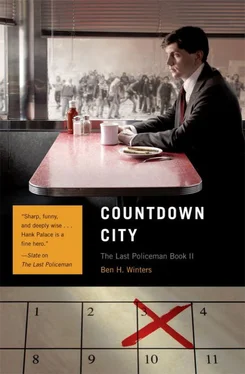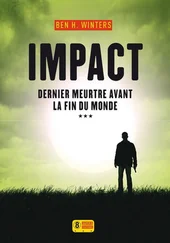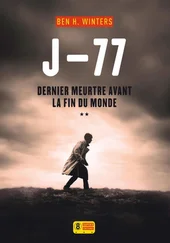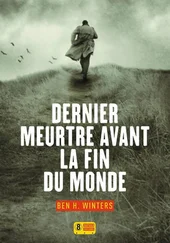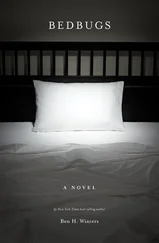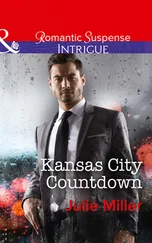I keep going, faster and faster. I shake it off, shake it all away—the fleeing family, the woman with the shotgun, Jordan’s leering insinuation, Nico on her helicopter, Alyssa and Micah Rose at the Quincy Street playground—everything everything everything—I keep my head down and my mind focused on the case because I’m sick of wondering why I’m doing this, why I care. This is just what I have, it’s what I do.
I take the left off Route 1 before I get to the Hood Factory, then a sharp right into the little tangle of streets behind the prison.
It’s dusk now. The sun is pinking on the horizon line, getting ready to sink.
I drifted away from my family, kind of , was what Jeremy Canliss told me—drifted away, but not before he inherited some sniper equipment from Canliss & Sons, not before he learned how to use it. Spent some time on the rifle range, not a converted bowling alley but a real range, learned to take a crack shot from three hundred yards. The murder weapon might even have been a sniper rifle from Dad’s old supply. Unless he picked it up along the way, an unexpected piece of good fortune, fate smiling on his plan. After he followed me to UNH, after he made his own way past the unevenly attentive perimeter guards—suddenly here’s Julia Stone’s miniature armory, and Jeremy helps himself to a weapon from the same stash where Brett got his.
Because it’s clear now what happened: Jeremy wanted Brett gone, and then he followed me to make sure he stayed gone.
I’m running now. I’m almost there.
Canliss told me where he lives without intending to. At the other side of my kitchen table, sweating and stammering through his story, he said how he and Brett would sit on his porch, watching the thugs go in and out of the state pen, Brett saying “there but for the grace of God.” There’s only one short street that runs directly behind the New Hampshire State Prison for Men, and that’s Delaney Street, and when I get there my watch says it’s 8:45—Tuesday, I think, some-how it is still Tuesday, and darkness has drawn down along this short crooked street.
Normally it would take me an hour to work my way down a street of nineteen homes. But nine out of the nineteen are abandoned, front doors caved in, windows smashed or papered over. At one house, number six, on the north side, the tile of the roof has peeled off like skin, revealing the bent beams of the attic. Of the remaining ten houses, two have lit torches in the windows, and I decide to start with one of those, number sixteen Delaney Street. I rush across the darkness of its weedy lawn.
The prison is directly behind the house and it’s on fire, bright walls of flame coming up out of the building’s old western wing.
I raise my left fist and bang on the door, shouting “Martha!” and the door is answered by an elderly couple, cowering, hands in the air, the woman in a nightgown and the man in slippers and pajama bottoms, pleading with me to leave them be. I exhale, step back from the door frame.
“Sorry to bother you,” I say. I take a step down the porch, then turn back before they’ve closed the door.
“I’m a policeman,” I say. “Do you have food?”
They nod.
“How much?”
“A lot,” says the woman.
“Enough,” says the man.
“Okay,” I say. Our bones are rattled by a reverberant boom from the southwest, the area of Little Pond Road and the reservoir.
“Do me a favor, folks: Don’t answer your door anymore.”
They nod, wide eyed. “You mean, tonight?”
“Just don’t answer your door anymore.”
The wind is picking up, summer breezes transforming into a panicky wind, sending leaves skittering down the street and banging garbage cans together and fanning the flames jumping up off the roof of the prison.
Houdini bounds down the porch ahead of me and we go to the other torch-lit house, number nine Delaney Street. As we cross the lawn, Houdini barks at the ground and some nocturnal creature leaps away from him, rustling a row of bushes. Even in the darkness the heat is unrelenting. My arm sweats in the sling. It’s a rickety wooden porch, cluttered with old junk. The door is unpainted and there’s a big New England Patriots beach towel strung across the front windows. This is right—it seems right—like just the sort of house where a quasi-employed twenty-year-old jack-of-all-trades would be crashing with assorted friends and acquaintances. I take the steps, two at a time, my heart beating fast for Martha.
Cortez was hit on the head this morning, he said, three hours before I got there. I got there at around 11:30. That means Martha was taken twelve hours ago. I bang on the door and call out “Jeremy—” the story alive and clear in my head.
Jeremy loved Martha. Martha loved her husband.
But canny young Jeremy had seen into the husband’s secret heart, and he knew that what Brett wanted was to leave. He knew from long talks over grocery runs and late nights at the pizza joint that Brett’s heart was straining at the leash: Here was a strange and high-minded man who wanted to use the last months to do some furious good in the world—who felt sure, in fact, that God was calling him to do so. But he was trapped by another kind of goodness, bound by his marriage vows.
And so Jeremy’s plan, the forged diary page, the deceit, like something out of Shakespeare, something from the opera: exile the man by guile, take the woman by force.
“Jeremy?” I call again, rattle the handle.
Fresh gunfire rends the air like distant thunder, and I hear indiscriminate screaming and then, by some trick of the wind, snatches from a desperate conversation—“no, come on—no…” “shut up, you shut your mouth”—from some other crisis, some other corner of the city.
No one answers the door. The wind is rifling my hair, raising hackles on my neck. Time to get in there.
“Stay,” I tell the dog. “Stand guard.” He looks up at me, his head at a tilt, his teeth bared. “Anybody comes up the steps, bark. Anybody comes out but me, attack. Okay?”
Houdini settles on his haunches at the top of the stairs, silent and purposeful. I haul back and kick, hard, with my right foot. The thin wood splinters; my body explodes in pain. The tissue shrieks in my sewn-up arm. I scream and double over and scream again, hold my head down until the pain concludes its route along the lines of my leg into the arm and back down to the ground. Houdini stands there, eyes wide with sympathy and wonder, but keeping in position as I have instructed.
“Good boy,” I mutter, breathing in and out, in and out. “Good boy.”
When I can move I go inside, into a dark and cluttered living room, one flickering torch burning down in a vase. A suitcase is propped against the back wall, half open, a few T-shirts spilling out like clustered snakes. An unplugged refrigerator lies on its side in the front room like a beached whale; someone has spray painted DOES NOT WORK across the top of it.
“Martha?” I call, and again, shouting, stepping carefully forward, no gun, hands raised before me. “Martha?
To the right is an arched doorway leading to a kitchen, to the left a long hallway. I head to the hallway and trip on something—a pair of sneakers, tongues lolling out obscenely, no laces. Once, I bet, this house was littered with pizza boxes, beer cans; once the TV was always on, someone was always on the sofa getting high, people were stumbling into and out of the bathroom getting dressed for smalltime retail gigs. It’s dark now; now all these young men are gone, wandering around the world. I imagine them, one gone home to be with mom and dad, one coupled off in an asteroid marriage, one to New Orleans, off and running.
And one still here. One a kidnapper, a murderer.
Читать дальше
